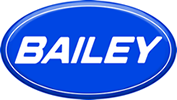Pitfalls to Avoid When Financing Your Caravan
Welcome to our latest blog post, where we delve into the complex world of caravan financing. The prospect of purchasing a caravan is undoubtedly thrilling, offering you the freedom to explore at your leisure. However, financing this dream can be laden with potential pitfalls.
This comprehensive blog post aims to shed light on the common mistakes people often make in their caravan financing journey and how to avoid them. With the right knowledge, you can navigate this process with confidence and ease.
Understanding the Full Cost
Depreciation
One of the most important things to remember is that caravans, like most assets, depreciate over time. This depreciation can have a significant impact on the resale value of your caravan.
The depreciation rate can vary depending on your caravan’s model and make. A new caravan can range from £15,000 to £250,000 or more, depending on the type, size, and quality. However, used models can offer substantial savings, especially if they are only 2 to 3 years old.
Therefore, it’s essential to consider how long you plan to keep the caravan and how depreciation will affect its value over that period.
Insurance Costs
Another crucial factor to consider when understanding the full cost of your caravan is insurance. The cost of caravan insurance can vary widely, depending on factors such as the caravan’s value, where it’s stored, and the level of cover you choose.
Researching different insurance policies and understanding what is covered under each policy is essential. This will help you avoid any unexpected costs in the future. Remember to include the insurance cost in your overall budget for your caravan.
Additional Costs
In addition to depreciation and insurance, there are other costs associated with owning a caravan that you need to consider. These include utility costs, maintenance and service fees, and site fees if you plan to keep your caravan at a specific location. All these costs can add up and significantly increase the overall cost of owning a caravan. Therefore, it’s crucial to factor in these costs before buying.
By understanding the full cost of owning a caravan, you can make an informed decision and avoid any potential financial pitfalls. Remember, thorough research and careful planning are key to successful caravan financing.
Maintenance and Running Costs
Maintenance Costs
Maintaining your caravan is crucial to ensure its longevity and safety. Regular servicing is a key part of this, which includes checking the brakes, lights, tyres, and the overall structure of the caravan. The cost of these services can vary, but keeping your caravan in top condition is an essential investment.
In addition to routine servicing, you should also factor in the cost of potential repairs. Caravans, like any vehicle, can experience wear and tear over time, and certain parts may need to be replaced. For instance, a caravan awning, an accessory that provides extra space and shelter, can cost anywhere from £100 to over £1,000, depending on its size, style, and quality.
Running Costs
Running costs are the ongoing expenses associated with using your caravan. One of the most significant running costs is fuel consumption. Towing a caravan will increase your vehicle’s fuel usage, so it’s important to calculate this additional cost when planning your trips.
Another running cost is the fees associated with campsites or caravan parks. These fees can vary greatly depending on the location and facilities offered. In the UK, yearly site fees can range from £1,200 to £5,000.
Storage costs are another factor to consider, especially if you don’t have space to store your caravan at home when it’s not in use. These costs will depend on the storage facility’s location and the level of security provided.
Lastly, don’t forget about utilities if you own a static caravan. These can include costs for metered electricity and other utilities, which can add up over time. It’s essential to consider maintenance and running costs when financing your caravan.
By understanding these costs, you can ensure that your caravan ownership is not just an exciting adventure but a financially sustainable one.
Securing the Right Finance
Choosing the right finance option is critical in the caravan purchasing journey.
Getting lured into attractive deals is easy without considering the long-term implications. However, with careful planning and a thorough understanding of your financial commitments, you can secure the best finance for your caravan.
Interest Rates
Interest rates play a significant role in your caravan finance. It’s essential to compare interest rates from different lenders to ensure you’re getting the best deal.
Understanding how the interest rate impacts your monthly repayments is key to managing your budget effectively. Be wary of deals with low introductory rates that skyrocket later. These can seem attractive initially but may lead to financial strain in the long run.
Be Prepared
Good preparation involves several factors. Knowing your credit rating, for example, will help you know what to expect from banks and lenders when negotiating your loan. It’s also best to select and research your top options for lenders beforehand.
You can better understand their loan programs and how well they fit your objectives.
Loan Terms
The term of your loan is another crucial aspect to consider. Shorter loan terms mean higher monthly repayments but less interest overall. On the other hand, longer loan terms result in lower monthly payments but more interest in the long run.
Stick to Your Budget
Budgeting will never be the best part of buying a new caravan. But, for such a sizable investment, you have to be realistic. So, once you know what you can expect to find in each price range, set limits and stick to them; this will also help you decide how to finance your caravan, which we’ll discuss in more detail later.
Remember, the key is to consider your financial situation and choose a term that suits you. This will ensure that your caravan purchase doesn’t become a financial burden.
Final Thoughts
Securing the right finance for your caravan is a process that requires careful consideration and planning. By understanding the implications of interest rates and loan terms and sticking to a realistic budget, you can make a well-informed decision that suits your financial situation.
Remember, the goal is not just to buy a caravan but to do so in a way that allows you to enjoy your new purchase without financial stress.
Hidden Fees and Charges
When embarking on the journey of caravan financing, it’s crucial to be aware of the pitfalls that can lurk in the fine print of your loan contract. Hidden fees and charges can significantly inflate the total cost of your caravan loan, making it essential to understand them before signing any agreement.
Administration Fees
One common type of hidden fee is the administration or setup fee. Lenders levied These charges to cover the costs associated with setting up the loan. This can include processing your application and preparing the necessary documentation. While these fees might seem insignificant at first glance, they can accumulate and significantly increase the total cost of your loan.
In the UK, reputable finance brokers specialising in caravan finance conduct extensive checks to ensure you can comfortably repay your debts. This includes transparency about any administration or setup fees involved in the loan.
Early Repayment Fees
If you plan to pay off your loan early, it’s important to be aware of any early repayment fees. The lender charges these fees if you decide to pay off your loan before the agreed term ends. They are designed to compensate the lender for the interest they would have received if the loan had continued for the full term.
Late Payment Fees
Another potential pitfall to be aware of when financing your caravan is late payment fees. These fees are charged if you miss a payment or make a payment after the due date. They can accumulate over time and significantly increase the cost of your loan.
Understanding the penalties for late or missed payments is crucial to avoid these fees. Ensure you clearly understand your repayment schedule and that you can meet your repayment obligations. Awareness of these hidden fees and charges can help you avoid potential pitfalls and make an informed decision when financing your caravan.
Always read the fine print and ask questions if you’re unsure about anything. After all, knowledge is power when it comes to navigating the complex world of caravan financing.
Loan Flexibility
When it comes to financing your caravan, understanding the flexibility of your loan is paramount. This knowledge can save you from future financial stress and ensure that your loan aligns with your financial capabilities and goals.
Extra Repayments
The ability to make extra repayments on your loan can significantly reduce the amount of interest you pay over the loan term. However, not all loan agreements allow for this without penalty. It’s essential to check if your loan permits extra repayments and if any fees are associated with this option.
Moreover, some loans offer a redraw facility, allowing you to access any extra repayments you’ve made if you need the funds. This feature can provide a safety net in case of unexpected expenses. However, it’s crucial to understand the terms and conditions of this facility, as fees or limits may apply.
Lastly, consider refinancing or restructuring your loan if your financial situation changes. Understanding the implications of these actions from the outset can help you make informed decisions down the line.
Early Repayment
Paying off your loan early can be attractive, potentially saving you significant interest. However, some loan agreements include penalties for early repayment. Knowing if these penalties apply to your loan and how they could impact the total cost is essential.
Consider if early repayment is a viable option for you. It may be beneficial if you anticipate a future income increase or prefer to be debt-free sooner. However, it’s important to weigh this against any potential penalties and the benefits of having more cash on hand for other expenses or investments.
Understanding the flexibility of your loan is a critical step in your caravan financing journey. You can choose a loan that best suits your financial situation and goals by knowing the terms and conditions related to extra repayments and early repayment.
This knowledge will empower you to confidently navigate the financing process, helping you avoid common pitfalls and move one step closer to owning your dream caravan.
Conclusion
Navigating the world of caravan financing can be daunting, but with the right knowledge and understanding, it doesn’t have to be. By knowing the total costs involved, securing the right finance, and being mindful of potential pitfalls, you can confidently finance your caravan and start your travelling adventure.
If you need further advice or assistance with caravan financing, don’t hesitate to contact us. We’re here to help you make informed decisions and find the best financing solution for your needs.




